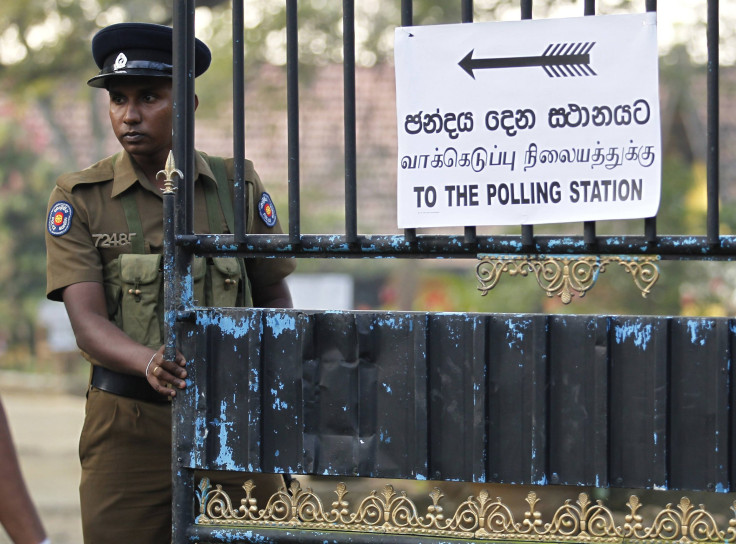Sri Lanka Elections: President Rajapaksa Faces Fierce Competition From Former Ally

Voting in Sri Lanka began on Thursday as millions of Sri Lankans went to the polls to elect the country’s next president. The elections, which are being held two years ahead of schedule, pose a tough challenge to incumbent President Mahinda Rajapaksa, who has been accused of corruption, nepotism and running the government like a family business, according to media reports.
Rajapaksa, who has been in office since 2005, had called early elections in November last year, reportedly anticipating an easy win, four years after amending the country’s constitution to remove a two-term limit on the presidency. Rajapaksa, who now faces Maithripala Sirisena -- a former health minister in his government -- at the polls, said on Thursday that he is confident of being elected a third time.
“We will have a resounding victory. That is very clear. From tomorrow, we will start implementing our manifesto,” Rajapaksa reportedly said, after casting his vote.
Rajapaksa faces stiff competition from Sirisena, who quit as the health minister and joined the opposition in November last year in a move that triggered over 20 defections from the government. Rajapaksa, who had earlier reportedly claimed that it is better to vote for the “devil you know” than an “unknown angel,” is believed to enjoy immense support among the majority Sinhalese population, while the country's Tamils -- Sri Lanka’s largest ethnic minority -- reportedly regard him with anger and suspicion.
Rajapaksa had won 58 percent of the votes in the country’s previous elections in 2010, riding on a wave of popularity after being hailed as the president who ended Sri Lanka’s nearly three-decade-long civil war with the LTTE -- a Sri Lankan Tamil separatist group. However, since then, following allegations of corruption, authoritarianism and spreading a dynastic rule, his popularity is believed to have waned. Rajapaksa's offensive against the LTTE has also triggered a United Nations inquiry into allegations of war crimes and genocide by the Sri Lankan army.
According to a BBC report, Srisena is expected to win the majority of the votes from Sri Lanka’s ethnic minorities, including the Tamils.
“The entire economy and every aspect of society is controlled by one family,” Sirisena, who leads an unwieldy and potentially fractious coalition of Marxist, religious and right-wing parties, had reportedly said last November, adding that he had defected from the government as he couldn’t remain with someone “who had plundered the country, government and natural wealth.”
According to media reports, at least 40 of Rajapaksa’s relatives hold various positions within the Sri Lankan government.
The run-up to the elections has also been marked with allegations of violence and intimidation. Last week, opposition leaders had accused the government of deploying the military to Tamil-populated areas in the country’s north and east, to deter Tamil voters from casting their ballot, according to media reports.
Highlighting international concerns over the transparency of the elections, U.S. Secretary of State John Kerry spoke to Rajapaksa to “underscore the government’s responsibility to ensure the January 8th elections will be free from violence and intimidation and that the vote counting is carried out credibly and transparently,” state department spokesperson Jen Psaki said at a press briefing on Wednesday.
© Copyright IBTimes 2024. All rights reserved.





















